Complete Guide to John Deere LA105 Repair Manual
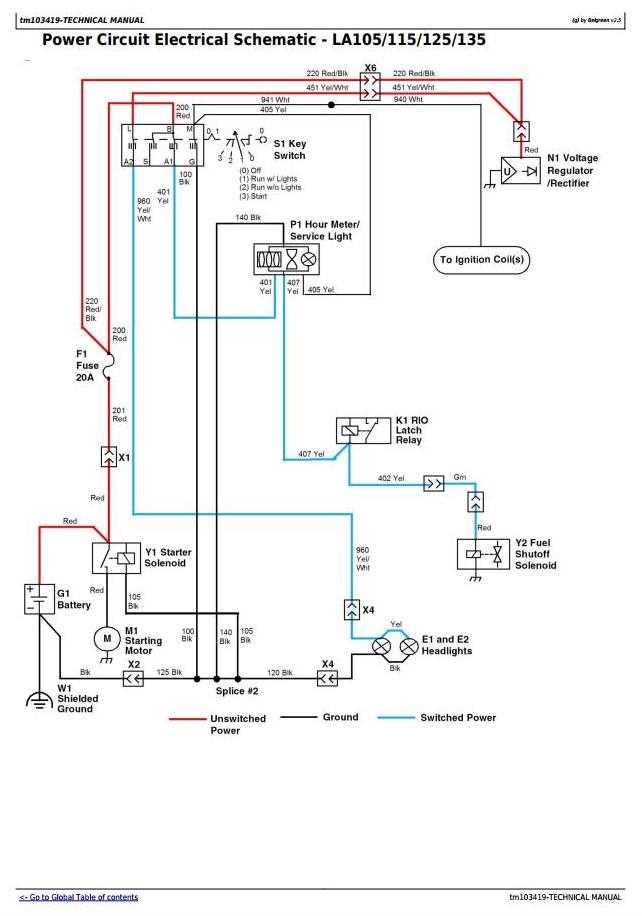
In the world of outdoor machinery, ensuring optimal performance is crucial for achieving the best results. Understanding the intricacies of your equipment allows for enhanced longevity and efficiency, making every task smoother and more enjoyable.
Whether you’re a novice or a seasoned operator, having access to comprehensive resources is vital. These guides provide invaluable insights into troubleshooting common issues, performing routine checks, and executing essential adjustments. With the right information at hand, users can delve deeper into the workings of their tools.
By following the outlined procedures, you can maintain the ultimate functionality of your machinery. From minor tweaks to significant repairs, being informed empowers you to tackle challenges head-on and keep your equipment running like new.
Understanding the John Deere LA105
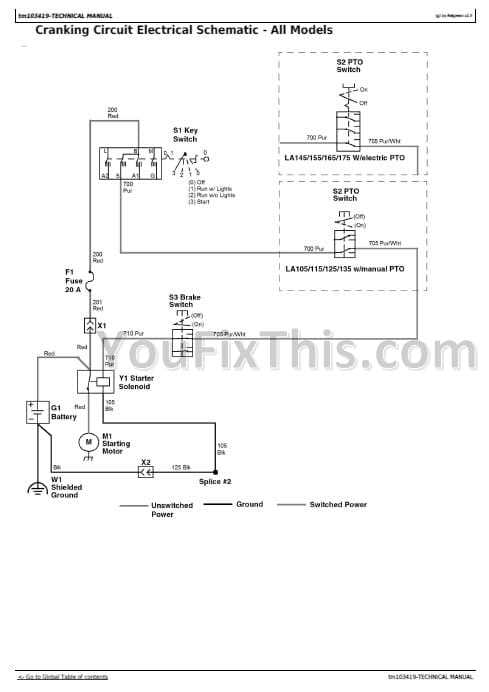
This section explores a popular lawn care machine designed for residential use, focusing on its features, benefits, and maintenance tips. It is engineered to provide efficient performance while ensuring ease of operation for homeowners. The combination of robust construction and user-friendly controls makes it a preferred choice for many.
Key attributes of this machine include its powerful engine, comfortable seating, and advanced cutting technology, all aimed at enhancing the mowing experience. Understanding these elements can greatly improve the efficiency and longevity of the equipment.
| Feature | Description |
|---|---|
| Engine Power | Offers reliable performance for tackling various grass types. |
| Cutting Width | Provides a wide cutting path for faster mowing. |
| Comfort | Equipped with an ergonomic seat to reduce operator fatigue. |
| Maintenance | Features accessible components for easy servicing and upkeep. |
By familiarizing yourself with the operational aspects and maintenance needs of this lawn care equipment, you can ensure optimal performance and a beautiful lawn throughout the mowing season.
Common Issues with LA105 Models
In the realm of lawn maintenance equipment, certain models frequently encounter a variety of challenges that can affect their performance and longevity. Understanding these common problems can help users troubleshoot effectively and maintain their machines in optimal condition.
One prevalent issue involves engine performance. Users may notice irregular starting, stalling, or reduced power output. These symptoms often stem from fuel system complications, including clogged filters or stale gasoline.
Another frequent concern is related to the cutting deck. Uneven cuts can result from dull blades, improper deck height settings, or debris buildup. Regular maintenance of the cutting components is crucial to achieving a well-manicured lawn.
Transmission problems can also arise, manifesting as difficulty in shifting gears or unusual noises during operation. This may indicate the need for lubrication or potential component wear that requires attention.
Lastly, electrical issues such as battery failures or wiring malfunctions can hinder the starting process or lead to intermittent operational failures. Regular inspections of the electrical system can help identify these problems early on.
By being aware of these common challenges, users can take proactive steps to address them, ensuring a reliable and efficient lawn care experience.
Essential Tools for Repairs
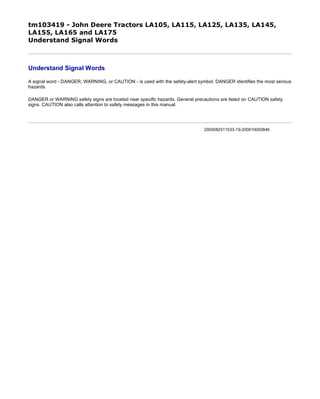
Having the right equipment is crucial for maintaining and restoring machinery effectively. A well-equipped workspace not only enhances efficiency but also ensures safety during tasks.
- Wrenches: Adjustable and fixed varieties are essential for loosening and tightening fasteners.
- Screwdrivers: A set that includes various sizes and types will cover most needs.
- Socket Set: Provides versatility in handling different bolt sizes and types.
- Pliers: Needle-nose and regular pliers assist in gripping and manipulating components.
- Multimeter: Essential for diagnosing electrical issues within the equipment.
Incorporating these tools into your toolkit will allow you to tackle a range of tasks with confidence and precision.
Step-by-Step Maintenance Guide
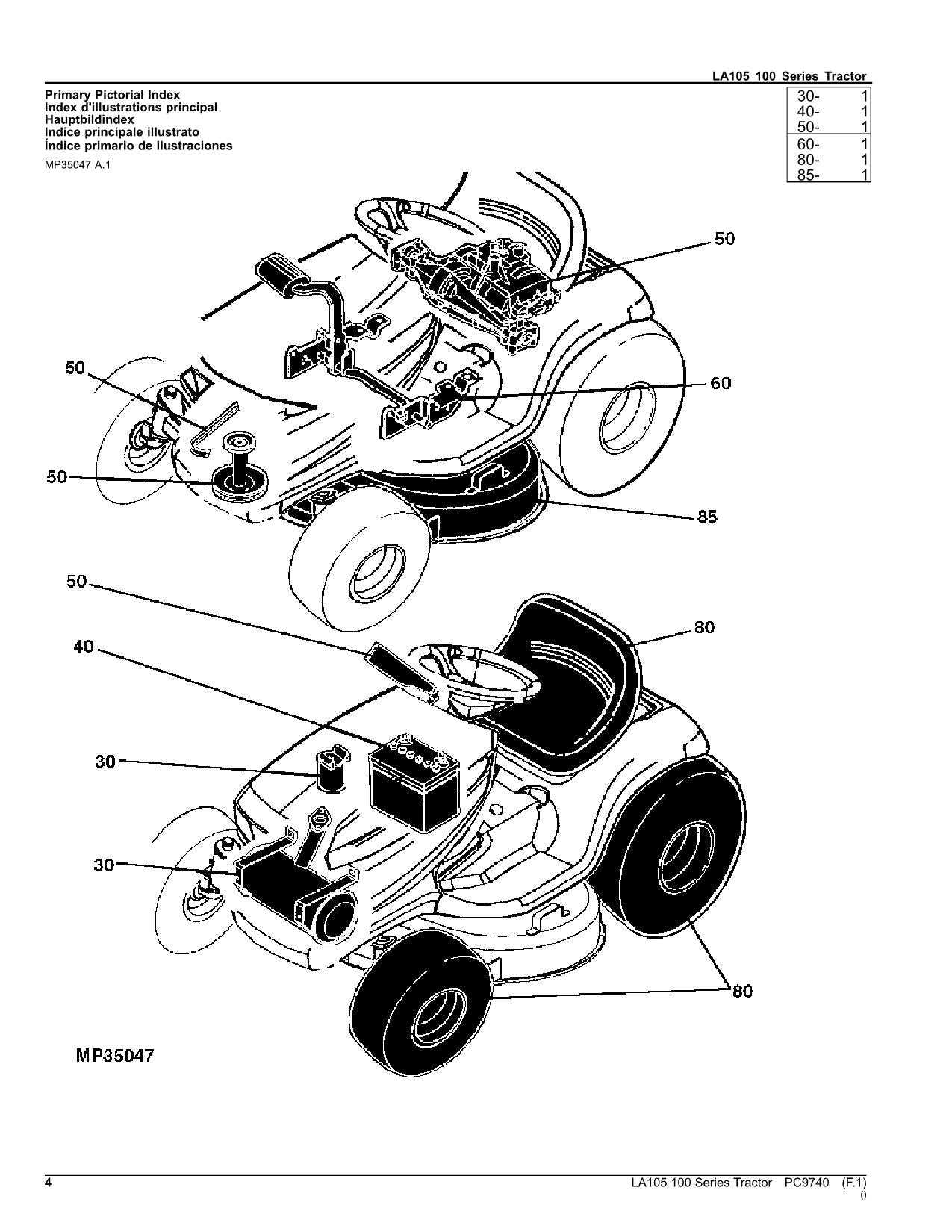
This section provides a comprehensive approach to ensuring your equipment runs efficiently and lasts longer. By following these systematic procedures, you can maintain optimal performance and address potential issues before they escalate.
| Task | Frequency | Description |
|---|---|---|
| Check Oil Level | Weekly | Inspect the oil level and top off if necessary to keep the engine lubricated. |
| Clean Air Filter | Monthly | Remove and clean the air filter to ensure proper airflow and engine performance. |
| Sharpen Blades | Every Season | Ensure cutting blades are sharp for efficient grass trimming and to prevent damage. |
| Inspect Belts | Monthly | Check belts for wear and tear, replacing them as needed to maintain functionality. |
| Battery Maintenance | Every 6 Months | Clean battery terminals and check charge levels to prevent starting issues. |
Engine Troubleshooting Techniques
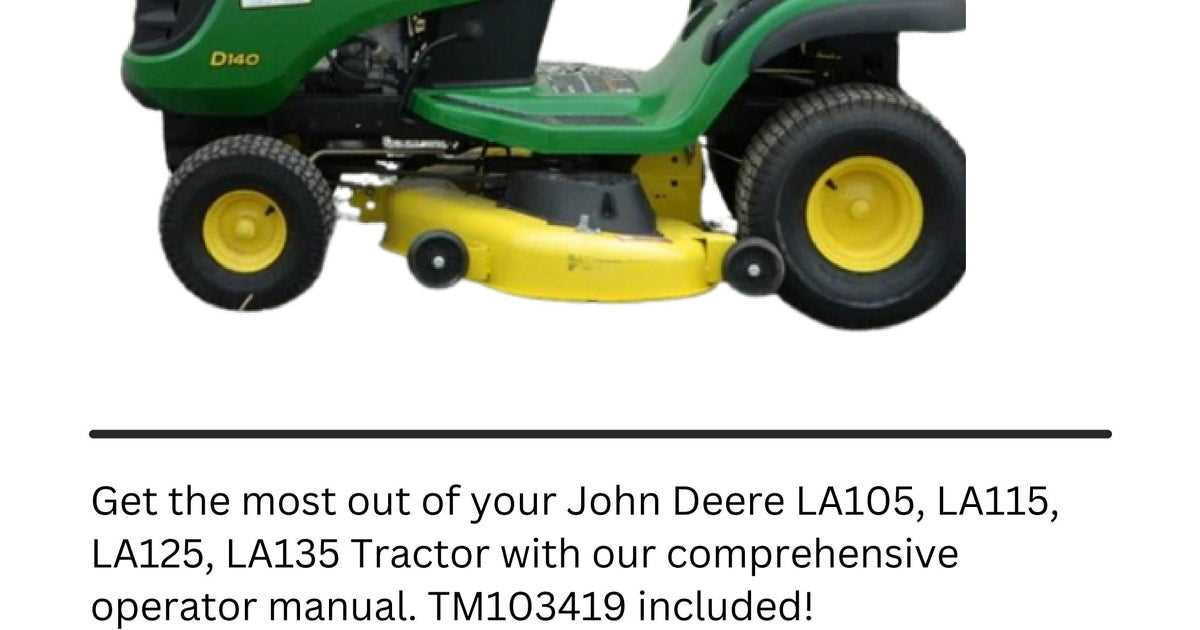
Effective diagnostics of power units is crucial for ensuring optimal performance and longevity. Identifying issues early can prevent more severe complications, saving both time and resources. This section outlines various approaches to diagnosing common engine problems, enabling users to tackle issues systematically.
1. Visual Inspection
Start with a thorough visual examination of the unit. Look for signs of leaks, corrosion, or physical damage. Pay special attention to hoses, connections, and the surrounding area. Any irregularities may indicate underlying issues.
2. Listening for Unusual Noises
Operational sounds can provide valuable clues. Listen for knocking, grinding, or excessive rattling, which may suggest internal mechanical problems. A smooth and consistent hum generally indicates proper functioning.
3. Checking Fluid Levels and Quality
Regularly monitor oil, coolant, and fuel levels. Low or contaminated fluids can lead to overheating or poor performance. Ensure that all fluids meet manufacturer specifications, as improper types can result in significant damage.
4. Utilizing Diagnostic Tools
Invest in diagnostic equipment such as multimeters or compression testers. These tools can help assess electrical systems and measure cylinder pressure, respectively. Accurate readings provide insight into the health of the power unit.
5. Reviewing Maintenance History
Examine the maintenance records to identify patterns or recurring issues. Understanding past repairs and service intervals can highlight areas that may require closer attention or preventative measures.
By employing these techniques, users can effectively identify and address engine concerns, ensuring reliable operation and extending the lifespan of the machinery.
Electrical System Diagnostics
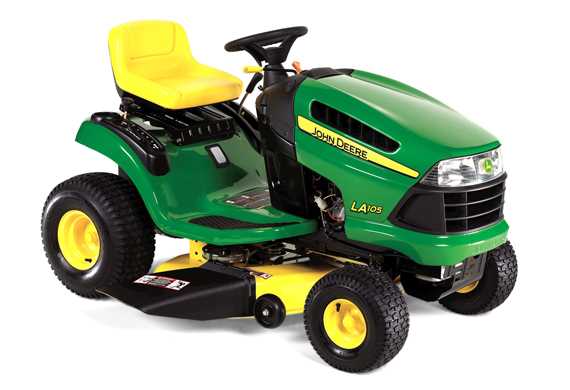
Diagnosing the electrical framework of a machine is crucial for ensuring optimal performance and longevity. This process involves identifying issues within the circuitry, components, and connections that may hinder functionality. By systematically evaluating the system, operators can pinpoint malfunctions and implement effective solutions.
Common Symptoms of Electrical Issues
Recognizing the signs of electrical problems can lead to quicker resolutions. Here are some typical indicators:
- Failure to start
- Intermittent operation of lights or displays
- Unusual noises when starting
- Inconsistent performance of electrical components
- Blown fuses or tripped breakers
Diagnostic Steps
To effectively troubleshoot the electrical system, follow these essential steps:
- Visual Inspection: Examine wiring, connectors, and components for signs of wear or damage.
- Check Battery: Ensure the battery is fully charged and terminals are clean and secure.
- Test Fuses: Inspect and replace any blown fuses as necessary.
- Use a Multimeter: Measure voltage and continuity to verify circuit integrity.
- Component Testing: Evaluate individual components like relays and switches for proper operation.
By adhering to these guidelines, users can effectively manage electrical issues, ultimately enhancing the reliability of their equipment.
Replacing the Lawn Mower Blades
Maintaining sharp cutting implements is crucial for optimal performance and lawn health. Dull or damaged blades can lead to uneven cuts, stressing the grass and inviting pests or disease. Regularly replacing the cutting tools not only enhances the mower’s efficiency but also promotes a lush, green lawn.
Before starting the process, ensure that you have the necessary tools and safety gear. A wrench, socket set, and gloves are essential for safely handling the components. Here is a simple guide to assist you in replacing the blades:
| Step | Description |
|---|---|
| 1 | Disconnect the power source to prevent accidental start-up. |
| 2 | Lift the mower deck for easier access to the blades. |
| 3 | Remove the blade bolts using the appropriate wrench or socket. |
| 4 | Carefully detach the old blades from the deck. |
| 5 | Install the new blades, ensuring they are oriented correctly. |
| 6 | Secure the blades with the bolts and tighten them properly. |
| 7 | Lower the mower deck and reconnect the power source. |
After installation, it is wise to test the mower in a small area to ensure everything is functioning smoothly. Regular checks and timely replacements will contribute to the longevity of the equipment and the beauty of your lawn.
How to Change the Oil
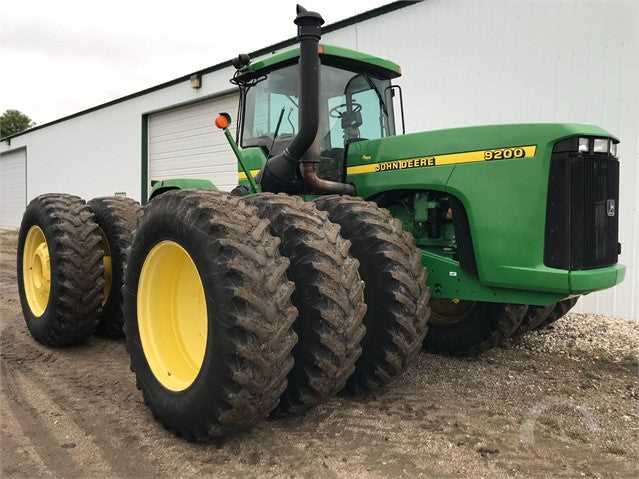
Changing the lubricant in your machinery is an essential maintenance task that ensures optimal performance and longevity. Regular oil changes help prevent engine wear, maintain efficiency, and reduce the risk of breakdowns. This guide outlines the steps to perform this task effectively.
Materials Needed
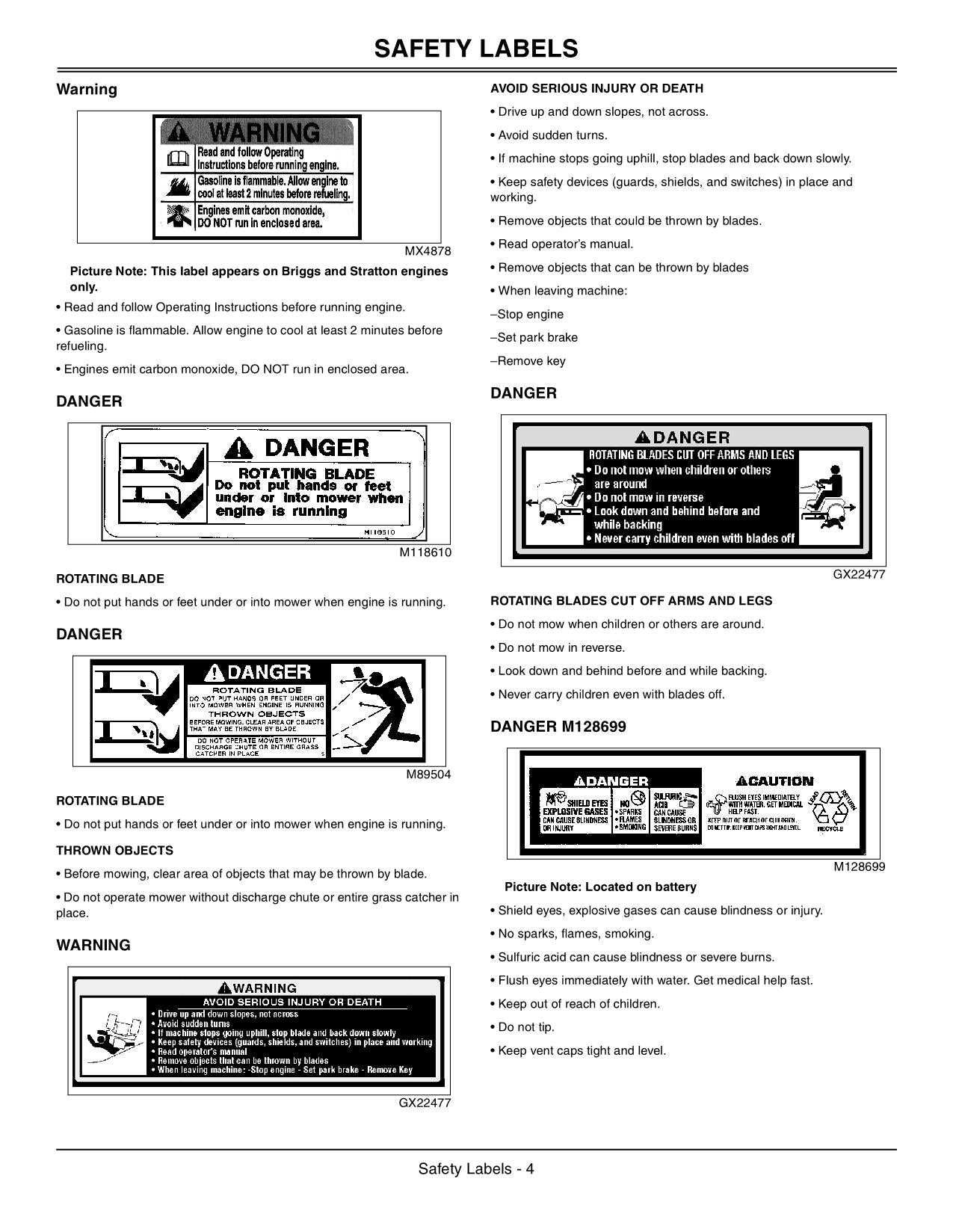
Before you begin, gather the following items:
| Item | Purpose |
|---|---|
| New oil | To replace the old lubricant |
| Oil filter | To ensure clean circulation |
| Wrench | For removing the oil drain plug |
| Oil pan | To catch the old oil |
| Funnel | For easy pouring of new oil |
| Rags | For cleaning spills |
Procedure
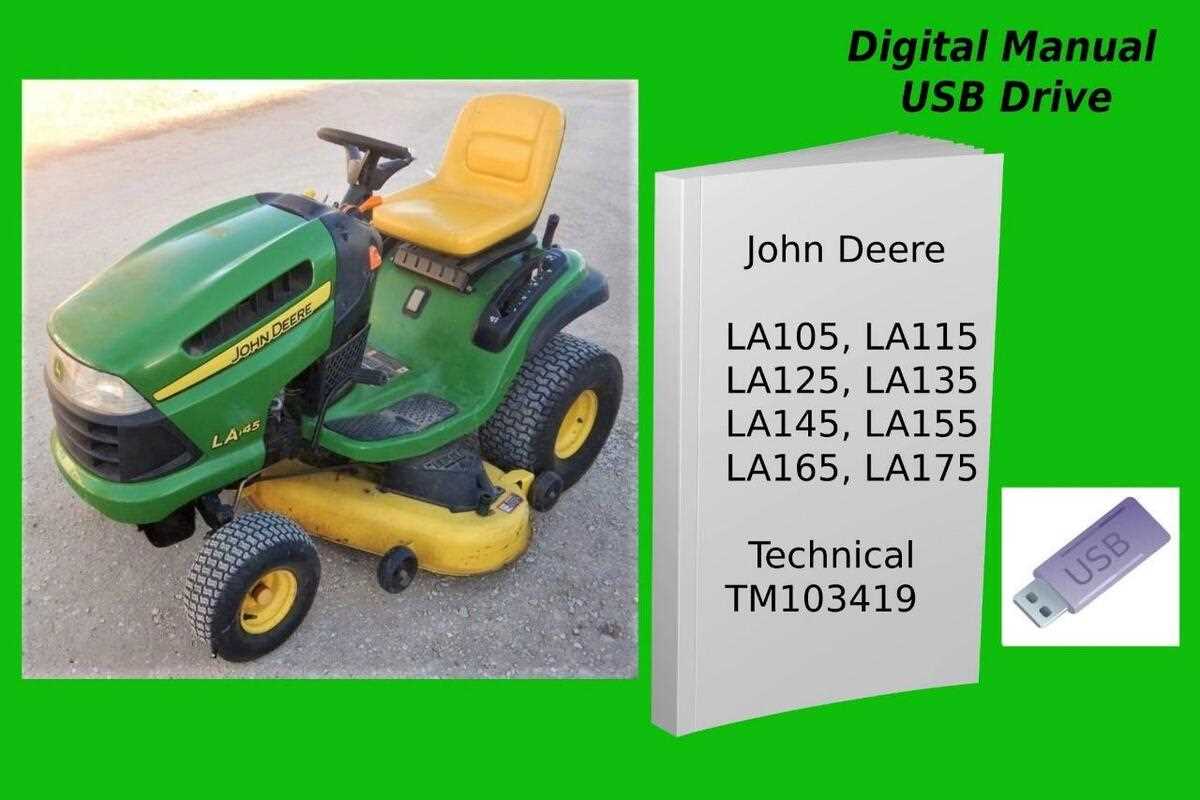
Follow these steps to complete the oil change:
- Warm up the engine for a few minutes to thin the oil, making it easier to drain.
- Turn off the engine and allow it to cool slightly.
- Place the oil pan beneath the drain plug and remove the plug using the wrench.
- Allow the used oil to completely drain into the pan.
- Replace the drain plug securely after draining.
- Remove the old oil filter and install the new one, ensuring a tight seal.
- Using a funnel, pour the new lubricant into the engine, following the manufacturer’s recommended capacity.
- Check the oil level with the dipstick and add more if necessary.
Completing this maintenance task regularly will help your machinery operate smoothly and efficiently.
Battery Maintenance and Replacement Tips
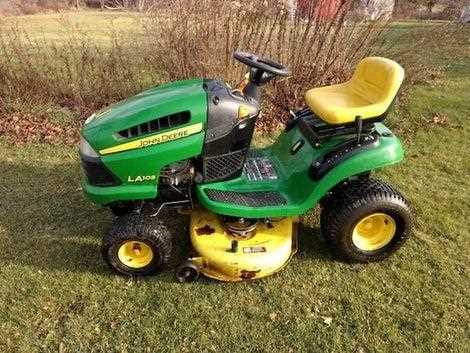
Proper upkeep of the energy source is essential for ensuring optimal performance and longevity of your equipment. Regular checks and timely changes can prevent unexpected failures and enhance the efficiency of the machine.
Regular Inspection: It is crucial to frequently examine the battery for any signs of corrosion, leakage, or damage. Ensure that the terminals are clean and free from rust to promote a good connection.
Charge Management: Keeping the battery adequately charged is vital. If your equipment is not in use for extended periods, consider using a trickle charger to maintain the charge level and prevent depletion.
Safe Handling: Always follow safety protocols when dealing with the power source. Wear gloves and eye protection, and ensure the environment is well-ventilated. This minimizes the risk of accidents during maintenance or replacement.
Replacement Timing: Be aware of the signs that indicate it may be time for a new battery. If you notice decreased performance, difficulty starting, or frequent recharging, it’s advisable to consider a replacement.
Proper Disposal: When replacing the energy source, ensure you dispose of the old unit responsibly. Many locations have recycling programs specifically for batteries to minimize environmental impact.
Fixing Fuel System Problems
Addressing issues within the fuel delivery system is essential for ensuring optimal performance of your equipment. Common challenges can lead to reduced efficiency or even complete operational failure. Understanding the components involved and knowing how to troubleshoot effectively can save time and resources.
Identifying Common Issues
One of the first steps in resolving fuel system difficulties is identifying symptoms. Look for signs such as difficulty starting, irregular engine performance, or a decrease in power. These indicators often point to problems like clogged filters, air leaks, or contaminated fuel. Regular inspections can help catch these issues early.
Steps to Troubleshoot
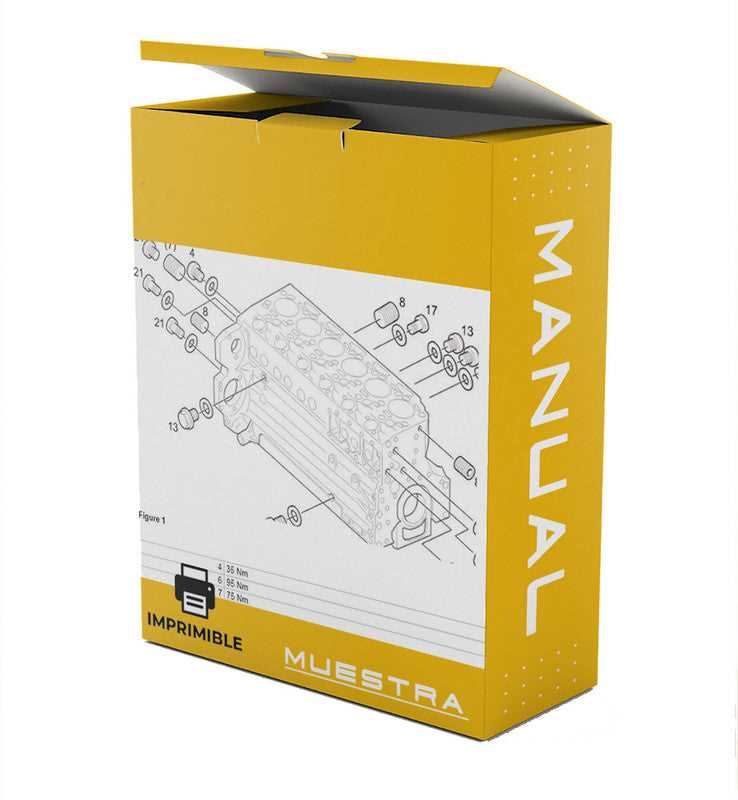
Begin troubleshooting by checking the fuel filter for blockages. Replacing a dirty filter can often resolve many issues. Next, inspect the fuel lines for any signs of cracks or leaks, as air entering the system can disrupt flow. Additionally, ensure that the fuel tank is clean and free from debris. If contamination is suspected, draining and cleaning the tank may be necessary.
By taking these proactive measures, you can maintain the integrity of the fuel system and enhance the longevity of your equipment.
Deck and Chassis Care
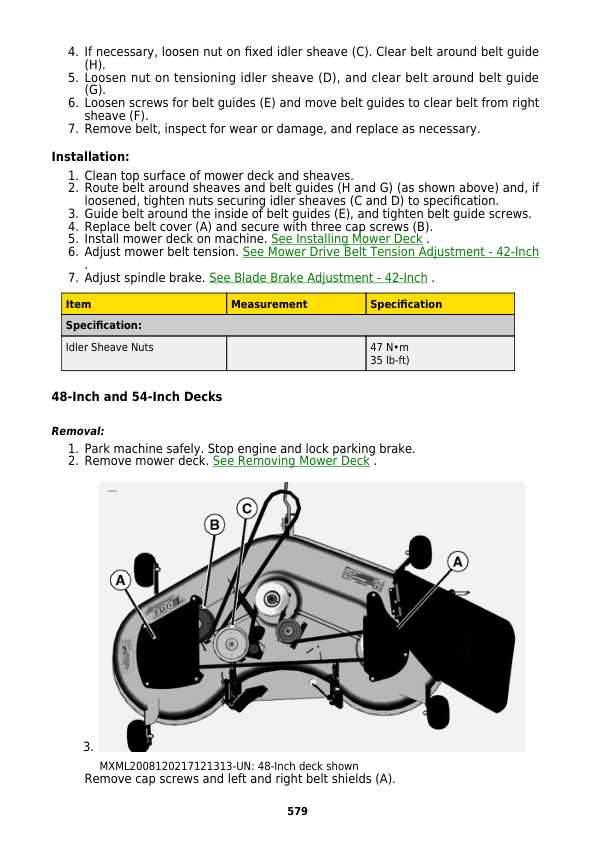
Maintaining the deck and chassis of your lawn equipment is essential for optimal performance and longevity. Regular attention to these components not only enhances functionality but also ensures a safe and efficient mowing experience. This section outlines key practices for keeping these parts in excellent condition.
Regular Cleaning
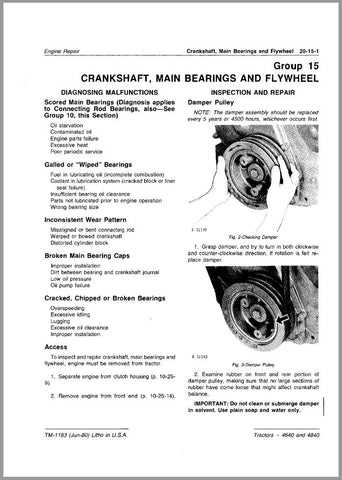
One of the most effective ways to preserve the deck and chassis is through consistent cleaning. Grass clippings, dirt, and debris can accumulate and lead to corrosion or damage. After each use, take the time to remove any buildup using a brush or water. For stubborn stains, a mild detergent can be applied. Ensure that all components are completely dry before storing the equipment to prevent rust.
Inspection and Maintenance
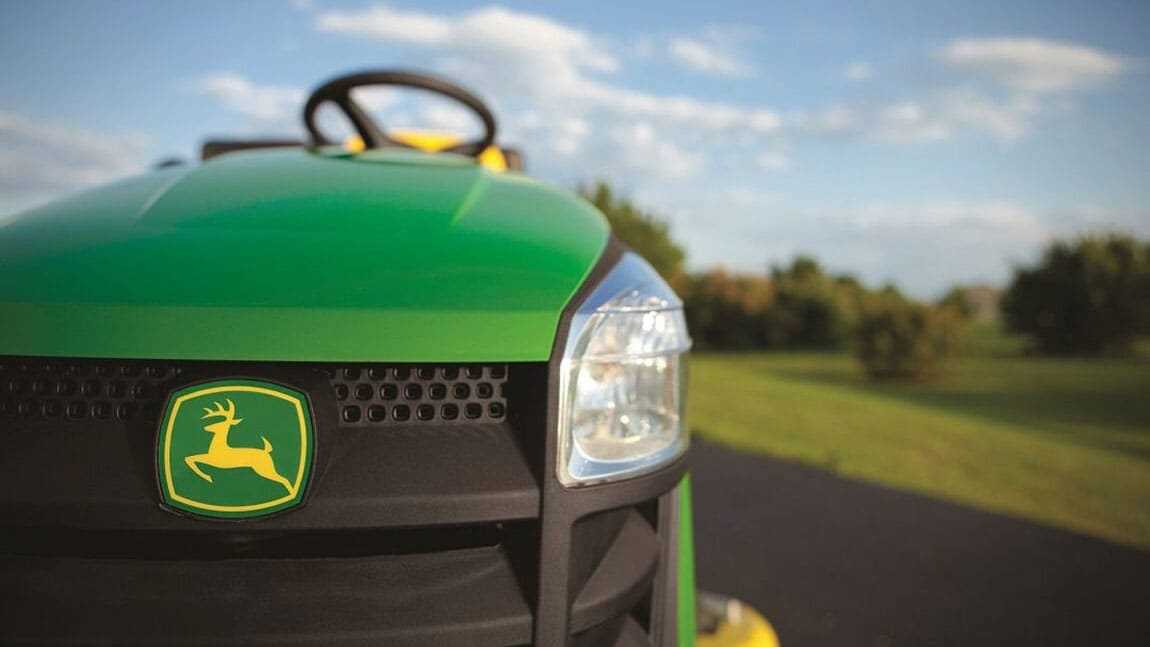
Routine inspections are crucial for identifying wear and tear. Look for signs of cracks, loose screws, or any irregularities that could impact performance. Lubricating moving parts is also vital, as it reduces friction and helps prevent premature wear. Consider checking the hardware connections and tightening any loose bolts to maintain structural integrity.
When to Seek Professional Help
Understanding the right moment to consult an expert can save time and prevent further complications. While many issues can be tackled with basic knowledge and tools, certain situations require specialized skills and experience to ensure safety and effectiveness.
| Signs You Need Professional Assistance | Possible Consequences of Ignoring Issues |
|---|---|
| Unusual noises or vibrations | Potential damage to components |
| Persistent operational failures | Increased repair costs |
| Fluid leaks or unusual smells | Safety hazards or environmental risks |
| Lack of proper tools or knowledge | Improper repairs leading to accidents |
Recognizing these signs can help in deciding when to reach out for professional expertise. Ensuring the longevity and functionality of your equipment often depends on timely and appropriate action.